Do you have the ability to identify significant differences among organisms and entities in the natural world? Are you skilled at understanding your natural environment? Are you the conscious observer of the things existing naturally? Are you conscious about environmental health? Do you notice certain patterns that most people don’t?
If yes then you possess an intelligence known as naturalist intelligence, one of the intelligence types described by American developmental psychologist Howard Gardner. And if your answer to these questions is ‘no’ then your naturalist abilities are not strong enough.
But the positive thing is you can enhance your naturalist abilities by taking interest in nature and undertaking certain tasks related to natural environment. Naturalist intelligence is not only one ability or characteristic of an individual rather it’s a set of different characteristics. So, what are the characteristics of individuals having naturalist intelligence?
Here are 9 important characteristics of such individuals those must also be the part of your personality in order to enable your naturalist intelligence abilities to grow deep and deep and at a very faster pace.
Conscious observers
People having naturalist intelligence are conscious observers, its their most significant 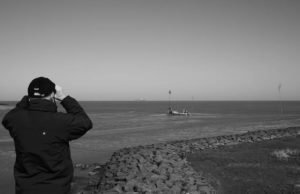 characteristic. Inborn naturalists have the quality of sitting still and consciously observing their environment, they notice what others miss out; they capture information using 5 basic senses and derive logical relationships among different phenomenon happening around them. You can improve your conscious observance skills by getting involved in different phenomenon of nature for nature is the best possible training setting for improving observation skills.
characteristic. Inborn naturalists have the quality of sitting still and consciously observing their environment, they notice what others miss out; they capture information using 5 basic senses and derive logical relationships among different phenomenon happening around them. You can improve your conscious observance skills by getting involved in different phenomenon of nature for nature is the best possible training setting for improving observation skills.
Notice things in the space around you; raise questions, find answers for them; pay attention to minor details; engage in Individual or team competition for noticing & memorizing objects in the surrounding.
Involvement in nature will not only improve your observation skills involving natural phenomenon but also improve your observation of non natural occurrences.
Your observation skills will keep on boosting when you will observe continuously and keep on diving inside the minor details of the objects around you
All naturalist are critical thinkers. Like conscious observance, critical thinking is another 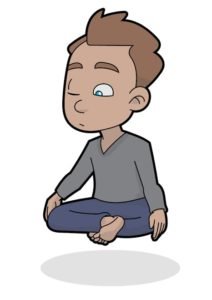 fundamental characteristic of naturalists. It makes it possible for them to connect the pieces of information (gathered through observation) to make a complete sense about their natural environment. Whenever you observe things in nature, there are a lot of exciting experiences and realizations that you attain and it is possible only if you think critically.
fundamental characteristic of naturalists. It makes it possible for them to connect the pieces of information (gathered through observation) to make a complete sense about their natural environment. Whenever you observe things in nature, there are a lot of exciting experiences and realizations that you attain and it is possible only if you think critically.
Some of the things you observe are easily comprehendible, others require critical thinking for the better comprehension. Mostly there are phenomenon that require deep thinking. Once you dig deep by just thinking critically, you may predict what you would otherwise have not come to know about without thinking critically.
Ask your 5 w’s (What, when, why, where, who) and H (How)questions about anything you observe and finding answers to these questions will surely develop your critical thinking abilities. Critical thinking ability of the naturalist also helps them excel in other areas of life
Great pattern recognizers
Pattern recognition is the capacity to recognize similar patterns and to discern among different  patterns and then applying them in the things you see in other context. This is like observation; however, pattern recognition is more advanced. It’s sort of like taking your observation skills to one step forward.
patterns and then applying them in the things you see in other context. This is like observation; however, pattern recognition is more advanced. It’s sort of like taking your observation skills to one step forward.
As you work on consciously observing nature, truly soon you’ll start to see genuine pattern in the trees, plants, flying creatures, seasons, and so on. This is one of the signs you truly have naturalist intelligence because the things you observe are no more isolated from one another rather they are interconnected.
Nature is the combination of integrated objects and phenomenon that balance each other.
Everything is associated with everything else, and the genuine enchantment happens when you can observer these associations for yourself by perceiving patterns.
Not all people are inborn pattern recognizers, it’s the ability that can be refined by practice and involvement.
Conscious users of basic senses
How do we transmit from our surrounding to our brain? Of course through our 5 five basic  senses of seeing, hearing, feeling, smelling and tasting. So, do you remember when did you use these senses last time to perceive your environment? If your answer is ‘no’ like most people, then you are also lost in the technological world like others. With technological development we are no more connected to our basic senses, but these technological products don’t strike the brain parts like nature can do. All naturalists use their basic senses consciously, if you wanna use yours also then you just have to go away from all the technological gadgets for a while, go outside and see, hear, smell, taste and feel the things in nature. World’s successful people have one thing in common and what makes them successful in their own field is the conscious use of their basic senses
senses of seeing, hearing, feeling, smelling and tasting. So, do you remember when did you use these senses last time to perceive your environment? If your answer is ‘no’ like most people, then you are also lost in the technological world like others. With technological development we are no more connected to our basic senses, but these technological products don’t strike the brain parts like nature can do. All naturalists use their basic senses consciously, if you wanna use yours also then you just have to go away from all the technological gadgets for a while, go outside and see, hear, smell, taste and feel the things in nature. World’s successful people have one thing in common and what makes them successful in their own field is the conscious use of their basic senses
Good organizers of mental thoughts
Organization of mental thoughts is another critical ability that originates from having a  functioning naturalist knowledge. Have you at any point seen that just being in nature can assist a bustling brain with settling down and work more effectively? Naturalists are frequently especially touchy to this psychological overpower, and become attracted to investing energy outside as an approach to refresh and regain a creative mental state. The capacity to simply be available and sit quietly and consciously is something that all individuals need in their busy lives. Once you will refresh and regain your conscious mental state you will be able to organize your mental thoughts
functioning naturalist knowledge. Have you at any point seen that just being in nature can assist a bustling brain with settling down and work more effectively? Naturalists are frequently especially touchy to this psychological overpower, and become attracted to investing energy outside as an approach to refresh and regain a creative mental state. The capacity to simply be available and sit quietly and consciously is something that all individuals need in their busy lives. Once you will refresh and regain your conscious mental state you will be able to organize your mental thoughts
Curious about things in surrounding
Active Curiosity is another tendency that you must develop in yourself, if you want to be a 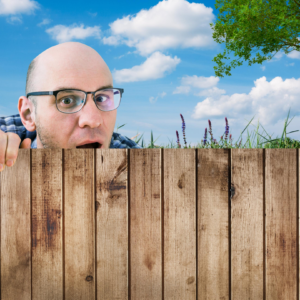 naturalist. It is naturalists’ tendency towards pondering or asking questions. While this can get overwhelming at times, it’s such an important part of the process of becoming naturalist and is especially applicable for young students older than 6 years of age. According to Dr. Bruce Lipton, an American developmental biologist and specialist in epigenetics, suggest that young students less than 6 learn solely through conscious observation. This is why toddlers are able to learn to speak multiple languages fluently while at the age of 6 they began to lose that ability and move towards experimental learning for the rest of their lives. When a young student asks questions he or she is trying to connect pieces of information together to better understand his or her experiences. As a naturalist teacher this is where you have the opportunity to move them towards you asking more questions and pondering more observations. For example, if you are talking about a video screen ask them about how the game was created or where they thought the story for the game might have come from. Why should you encourage that questioning mindset at an early age? Because, the world of a young learner is full of amazing things like different food varieties, new words to understand, new people to interact with, new places to visit & so on. He or she wants to know more & more; at this stage if we answer their questions and encourage them to ask even more questions then, his inborn curiosity will grow further. If, however we discourage questions, their natural quest for knowledge will decline. Among motivational factors that encourage young young students to learn more and more, curiosity is the most important motivational factor for their learning. Here are some strategies to raise a brilliantly curious individual:
naturalist. It is naturalists’ tendency towards pondering or asking questions. While this can get overwhelming at times, it’s such an important part of the process of becoming naturalist and is especially applicable for young students older than 6 years of age. According to Dr. Bruce Lipton, an American developmental biologist and specialist in epigenetics, suggest that young students less than 6 learn solely through conscious observation. This is why toddlers are able to learn to speak multiple languages fluently while at the age of 6 they began to lose that ability and move towards experimental learning for the rest of their lives. When a young student asks questions he or she is trying to connect pieces of information together to better understand his or her experiences. As a naturalist teacher this is where you have the opportunity to move them towards you asking more questions and pondering more observations. For example, if you are talking about a video screen ask them about how the game was created or where they thought the story for the game might have come from. Why should you encourage that questioning mindset at an early age? Because, the world of a young learner is full of amazing things like different food varieties, new words to understand, new people to interact with, new places to visit & so on. He or she wants to know more & more; at this stage if we answer their questions and encourage them to ask even more questions then, his inborn curiosity will grow further. If, however we discourage questions, their natural quest for knowledge will decline. Among motivational factors that encourage young young students to learn more and more, curiosity is the most important motivational factor for their learning. Here are some strategies to raise a brilliantly curious individual:
Teaching your student, the art of raising & asking questions
Questioning the question
Comparison learning
Teaching Flexibility: Teach your young students how to be a flexible thinker & doer
Aesthetes
People having naturalist intelligence are inborn aesthetes, they are sensitive to art and beauty 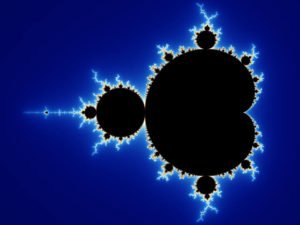 and love it. Though its an inborn characteristic yet you can develop it by focusing on things in the natural world you love. Developing an aesthetic sense is essential to developing your naturalist intelligence because it enhances all the other abilities of a naturalist mentioned so far because its obvious that you will willingly observe, recognize patterns, become curious, and critically think about things in nature if you are loving and appreciating them
and love it. Though its an inborn characteristic yet you can develop it by focusing on things in the natural world you love. Developing an aesthetic sense is essential to developing your naturalist intelligence because it enhances all the other abilities of a naturalist mentioned so far because its obvious that you will willingly observe, recognize patterns, become curious, and critically think about things in nature if you are loving and appreciating them
Protectors of nature
All naturalist use to protect their natural environment, they just cannot see the damaging  effects that modern humans are causing towards on their natural land. If you also take care of your natural environment and oppose all those policies and products that affect your natural environment, you are a straightforward naturalist and you just need to enhance your naturalist abilities. A person who really does not care about his natural surroundings and keeps on ignoring the damaging effects caused by the industrialist world can never be a naturalist.
effects that modern humans are causing towards on their natural land. If you also take care of your natural environment and oppose all those policies and products that affect your natural environment, you are a straightforward naturalist and you just need to enhance your naturalist abilities. A person who really does not care about his natural surroundings and keeps on ignoring the damaging effects caused by the industrialist world can never be a naturalist.
Empathetic towards others
Naturalists are empathetic towards the things in the natural environment, they just take care of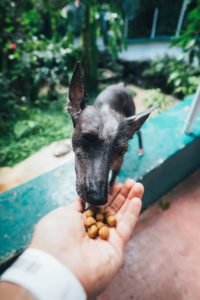 every creature and never cause damage to anyone of them. They understand what other creatures are thinking and feeling and this involvement and engagement further helps them to be more close with their natural environment. To be naturalistic-ally intelligent you must also be empathetic towards the creatures in your environment.
every creature and never cause damage to anyone of them. They understand what other creatures are thinking and feeling and this involvement and engagement further helps them to be more close with their natural environment. To be naturalistic-ally intelligent you must also be empathetic towards the creatures in your environment.
By adopting the characteristics of naturalists, you will surely improve your naturalist intelligence and you will be able to live in harmony with nature and protect your own natural environment and in turn will make this world a better place to live for generations to come. Besides, identifying and nurturing your naturalist intelligence can make you a better professional of every field, you will be caring for environmental health before taking any major decision. Nurturing your naturalist intelligence also helps you in improving other abilities or intelligences that you possess so far.
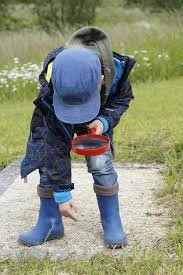 Think differently and be a naturalist to protect and nourish your natural environment.
Think differently and be a naturalist to protect and nourish your natural environment.
Facebook : Think Different Nation
Instagram : Think Different Nation
Twitter : @TDN_Podcast
